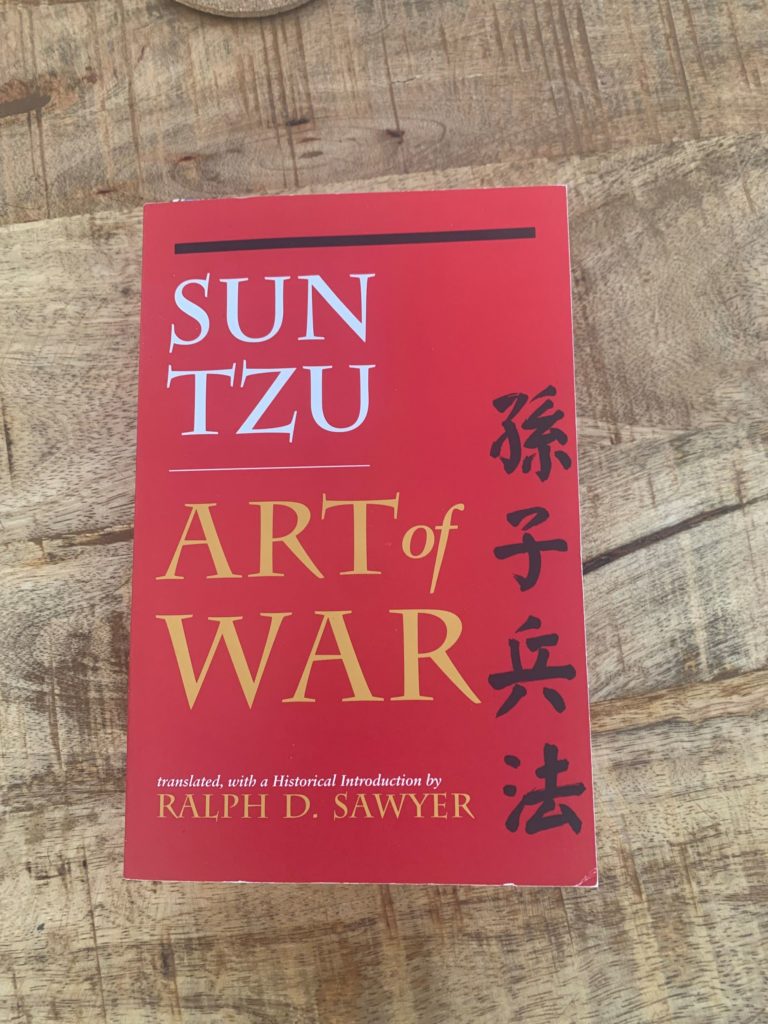I read a bunch of these chapters in a row when my son was at a doctor’s appointment. A few weeks later I re-read this chapter again and last night I re-read it again. This particular chapter is more abstract then the ones I have reviewed thus far. Truth be told, I didn’t get much out of it by reading multiple times. I was hoping that if I kept banging my head and then letting it rattle around for a while it would come to me.

As a result, I went to the internet to get a hint. It is like those 3D pictures that you stare and stare until you see it. I guess that I would say that I see it, but it is not direct. This chapter is about leadership and it uses some very some very aloof analogies to make the point.
Part of the reason that it is so abstract is because this chapter is riddled with eastern philosophy. I am no expert in that, in fact I can barely recognize it. The two strongest ones were Yin and Yang (I recognized that one) and the order of fives. I had no idea that the Chinese thought that there were five notes, five colors and five flavors (that seems familiar). While I am familiar about some of those ideas, mastering the practice is a life long endeavor.
With that in mind, I am not sure exactly how the technique of go hard/go soft is actually a successful military tactic. I suppose that I could take it as far as tactics are situational. That seems intuitive at least. But, since this chapter is about leadership, I have heard it say that the best leaders know how to motivate people by a mixture of toughness and softness. I won’t say it is common sense because I have come across a lot of bad leaders but at least it feels right.
Without reading the cliff notes, I picked the last section as what I thought was the most impactful section of this chapter. The text talks about logs and rocks as sort of moving as a result of natural consequences. It is the leader that positions the logs and rocks to roll down the hill and stay stationary on a flat surface. Or said another way, the leader is the one to own the battle’s win or loss results. That is something I can get behind.
Many times I think that leaders get too much credit without enough blame. Let us think about the President for a moment. Whether we will have one or the other as president, it generally won’t change the temperature in my pool so to speak. When the economy was on fire in the late 1990s, Clinton didn’t do that. He just happened to be in the right place at the right time. W Bush didn’t cause the financial crisis of 2008, he just happened to be in the wrong place at the wrong time.
Now, he didn’t do himself any favors by continuing to support money printing under the federal reserve. He also got lucky that financial takeovers stopped the economy from totally failing. But to actions that he did personally as president had little to do with the overall outcome. What I am trying say is that leaders enable the conditions for success or failure. Depending on whether they guess right or not has potential outcomes.
You can bet that if we see a President Harris, that administration will be open to communing with socialists. You can also bet that if we see a President Trump, that administration will be open with Oligarchs. Both will be dreaming about a Fascist future. Because that is our destiny, it will likely be so. Tell me, what would I credit either with? Certainly not a better future based on American ideals. But they won’t do it by themselves, the constituents, the appointees and the people working the system will be the ones doing the work. Only the accountability goes to the leader.
End Your Programming Routine: In the end, I agree that leaders should be accountable. I also agree that there are many things that can be done to influence the results. But ultimately, leaders design the boat, they don’t make it sail. If their design for a sail boat contains no sail, then obviously that is going to fail. Putting the proper boat in the water isn’t going to guarantee that it sails either. There are factors like having wind that we just cannot control.
Recent Comments